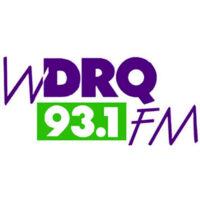
WDRQ (New Country 93.1) Detroit, sold to Family Life Radio this week and now pending a format change, is a station that embodies the history of perhaps America’s greatest (and certainly most distinct) radio market. WDRQ has spent the last decade as Country — launched as “Nash-FM” in the second-worst market (after New York) to name a station after another city. But for much of its history, WDRQ was a station that typified Detroit’s melding of R&B and rock. Even as a Country station, WDRQ (briefly) tried to play “Old Town Road.”
You can still stream WDRQ as a Country station, although PD David Corey exited with the format announcement. Most of the older audio of WDRQ available online comes from two periods of the station. There are airchecks of WDRQ’s early days as Top 40 in 1973-74 as the Detroit flagship of Bartell Broadcasting’s screaming “Super-Q” format. (There was also an aircheck of WDRQ from 1973 on the first cassette I bought from the California Aircheck service, a key part of my education in radio programming.)
WDRQ was modeled on sister KCBQ San Diego and helmed by a programmer stolen from a rival San Diego station, Jerry Clifton. Even more than rival AM powerhouse CKLW, WDRQ embodied the Detroit history of R&B and rock together. Plus, WDRQ didn’t have to play CKLW’s (often softer and poppier) Canadian-content records. When I heard that summer ’73 aircheck of WDRQ, it was one of the first Top 40s about which I thought, “This is really obnoxious. This is great.”
You can hear a Fall 1973 WDRQ aircheck of Steve Rivers (not the ’80s/’90s programmer) and Brian White here. There’s also this brief aircheck of morning man Bill Bailey from late ’73 soliciting callers for his signature “all-gone plant” (a Venus fly-trap plant that consumed whatever was annoying you.) MCFRB.com, which has the most extensive WDRQ aircheck archive I’ve found, also has tape of Bob Pittman on WDRQ.
There’s also a lot of WDRQ from 1996 to the mid-’00s under PD Alex Tear, now at SiriusXM. WDRQ began as a Rhythmic AC along the lines of WKTU New York, heard here. When the CHR resurgence took place, it returned to Top 40 (dance-leaning at first), and battled WKQI (Channel 95.5) for nearly a decade before becoming Doug-FM during the Adult Hits rush of 2005.
You can find a number of WDRQ late-’90s airchecks here. There’s also audio online of the station from July 1998, with market veteran “Lisa-Lisa” Orlando, and also with Dave Fuller filling in for her in 2001. Like WKTU, WDRQ found a lot of its own records — something Tear still does at SXM Hits 1 today. The song I most associate with WDRQ during those years is “So in Love with You” by Duke, a song that wasn’t a hit elsewhere.
In between those two top-40 eras, there were a number of changes, some better remembered than others, including:
- Roughly a year as a disco station, at a moment when Detroit didn’t yet have a dominant R&B outlet on FM. On this aircheck, WDRQ is positioned as “The Motown Sound,” but I remember it as the “Best Beat in Town” after the R&B hit by Switch. When WDRQ returned to Top 40 in late ’79, it opened a door for locally owned WGPR to briefly dominate and make a local star out of Electrifyin’ Mojo, who combined R&B with new wave and even Heart and Bad Company.
- About 18 months in 1980-81 as Mainstream CHR again, with a good ear for music under MD/p.m. driver Jim Ryan. (Don Geronimo and Jim Zippo were also on the station in that era.)
- A 1981-82 segue first to AC, then, under PD Rick Torcasso, an evolution to something that didn’t yet exist at the time, Rhythmic AC. You only hear the beginnings of it on this aircheck, but WDRQ was about to add some Quiet Storm-type R&B that had never been played at pop radio, even in Detroit. The next step was …
- Four years as an R&B outlet with Clifton consulting and White as the launch PD. This aircheck is early in the transition, but WDRQ changed just in time for the Thriller and 1999 albums, as well as Marvin Gaye’s comeback and the post-“Planet Rock” rise of electro-rap and then Detroit techno. At the outset, WDRQ was essentially a more mainstream version of the R&B/new-wave mix that Mojo had popularized on WGPR. Its success was a wakeup call to rival WJLB and spurred a classic format battle that lasted until …
- A 1986 switch to AC WLTI (Lite FM), at first running the syndicated Format 41, then local under former CKLW PD Pat Holiday and MD Rosalie Trombley. Here’s the station in fall 1988. The format lasted for nearly a decade.
Within days of the WDRQ announcement came another jolt. Canada’s Bell Media, now the owner of CKLW, announced the shutdown of six AMs, including at least three of the stations that had been AM Top 40 powerhouses in Vancouver, Winnipeg, and London, Ontario. Bell also announced plans to sell CKWW (AM580) Windsor, Ontario, which had been playing a ’60s/’70s-based mix of CKLW’s greatest hits (as well as some of its now-obscure Cancon). That station has sometimes been geoblocked to the U.S., but its stream is currently available; it’s another place to hear Detroit’s radio history. (So is former PD Charlie O’Brien’s Big 8 Radio.)
Finally, here’s New Country 93.1 on June 9 just before 11 a.m.:
- Nate Smith, “Whiskey on You”
- Darius Rucker, “Fires Don’t Start Themselves”
- Kane Brown & Katelyn Brown, “Thank God”
- Blake Shelton, “Honey Bee”
- Jordan Davis, “What My World Spins Around”
- Chris Stapleton, “You Should Probably Leave”
- Megan Moroney, “Tennessee Orange”
- Dustin Lynch, “Seein’ Red”
- Gabby Barrett, “Glory Days”
